Japan is one of the healthiest countries in the world. As a people, the Japanese have a low incidence of obesity, cancer, and cardiac disease. They also live longer than nearly every other culture in the world. Much of their healthy and longevity is due attributed to their amazingly healthy diet. It is not uncommon for an adult to consume over 30 different vegetables per day. In addition to the high rate of plant-based foods, the Japanese eat fish over meat and lean poultry over fatty meats. Explore these 15 health benefits that are a natural part of the Japanese diet.
1. Age Defying
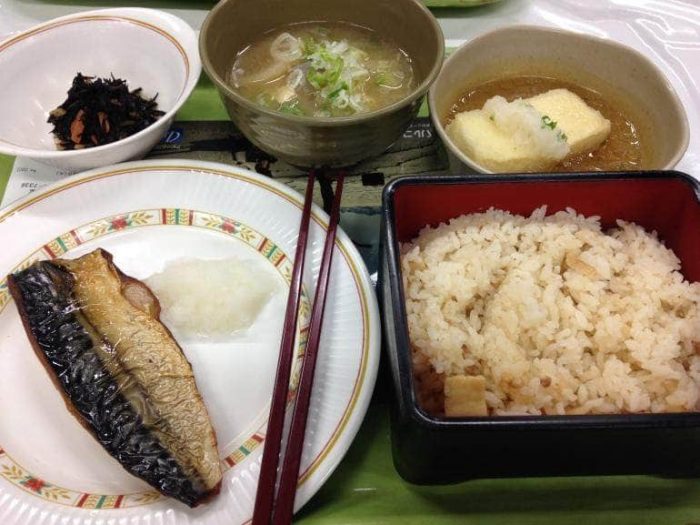
Advertisements
Japanese Lunch Meal – TokyoCheapo
If you have ever noticed how young Japanese adults look even well into their late years then you are not alone. The Japanese age well thanks to their amazing diet. It is not just about eating fish, but the inclusion of many different types of foods each day that helps their bodies to fight free radicals. Free radicals are the waste products that occur at the cellular level when cells use resources for energy or to build new cells. A healthy diet helps provide the body with antioxidants such as vitamin E, b-Carotene, and Vitamin C. All those vegetables help along with the low fat and high protein Japanese diet.
2. Helps Control and Prevent Diabetes
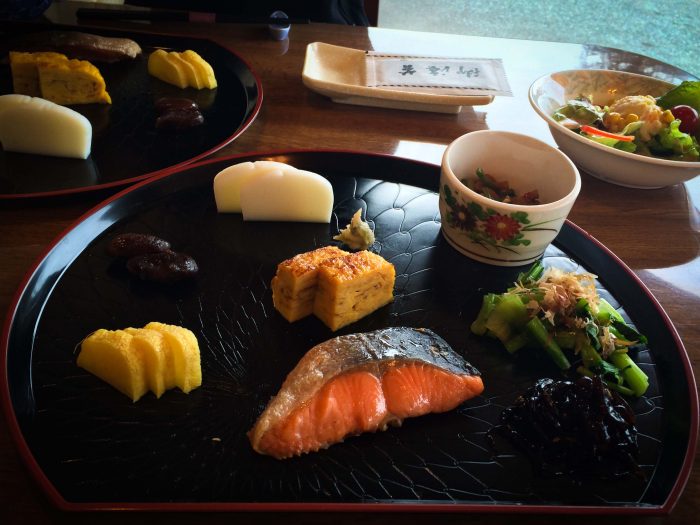
Japanese Food – Worldlynomads.com
One of the key elements of the Japanese diet is long-acting carbs. While there are sweets and processed foods, many of the foods that Japanese people eat offer good carbs. In America, people tend to eat highly processed foods and those carbs burn quickly leaving Americans hungry. The obesity rate in Japan is below 5 percent whereas in American obesity is in the low 30 percent range. The Japanese diet is a natural anti-diabetic diet. It offers a lot of vegetables, healthy, lean meat and plenty of fish. Long-acting carbs help to supply a steady blood-sugar level and keep us feeling fuller longer.
3. Lower Incidents of Heart Attack
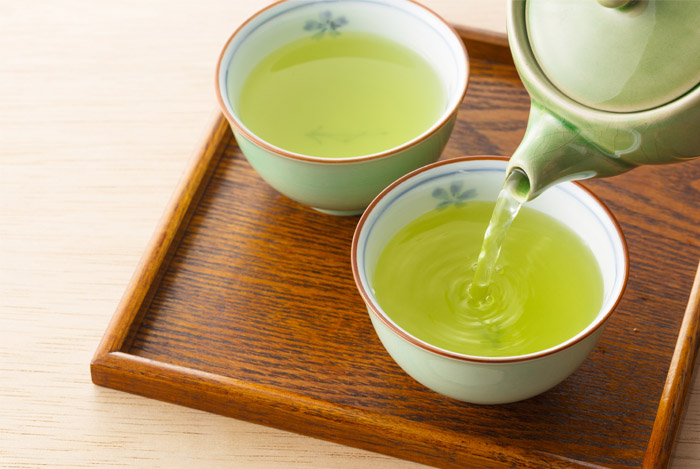
Amazing Benefits of Green Tea – Nutritionsecrets.com
As a nation, Japan has one of the lowest rates for the development of heart disease in the world and even more so among developed countries. The reason for the low instances of heart disease is the Japanese diet which is fortified with foods that help improve heart health, such as green tea. In addition, it is the lack of foods in the diet that also promote poor cardiac health such as high levels of saturated fats, modified carbohydrates from process foods, and sugar consumption. The Japanese diet continues to be one that is full of health benefits including stronger and healthier hearts and cardiac systems.
4. Healthy Body Index
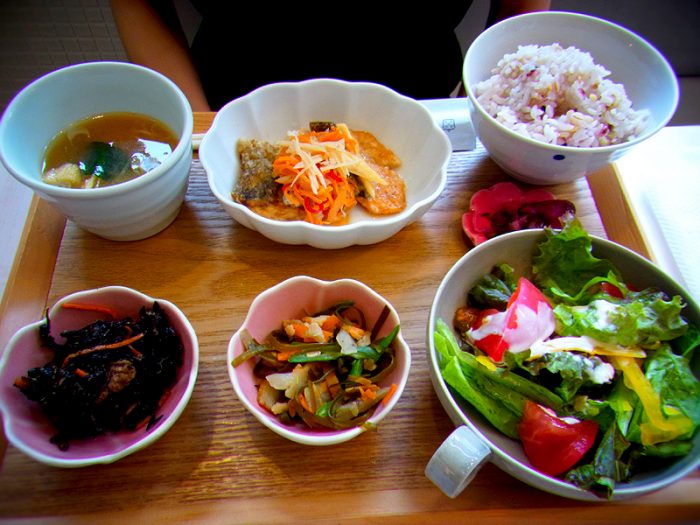
Japanese Home-style Cooking – Tglschool.org
Japan has a healthy food environment. Sure, you can go out and find fast food, but most Japanese prefer eating home cooked meals. Even when they go out for meals the food choices are healthy. In contrast, the American diet is not considered a healthy food environment. American’s eat a lot more unhealthy fast foods that are comprised of low nutrient processed carbs and sugars. Those are empty calories. In Japan, there is a low incidence of obesity thanks to the positive food choices in Japan. Japanese tend to eat more rice than bread. Rice is a good carb, while bread is not. This is part of why you see a healthy population with good BMI.
5. Brilliant on the Palate
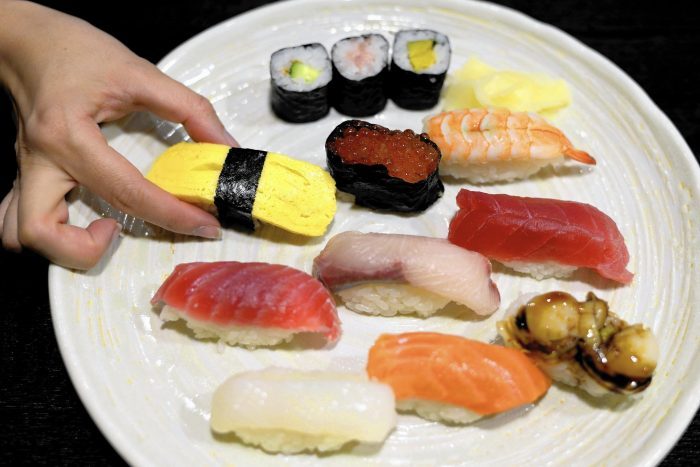
Eating Sushi – Latimes.com
One of the healthy benefits of the Japanese diet is that it is rich in vitamins, minerals, and enzymes. It is not just that Japanese foods are a good source of vitamins, minerals, and enzymes it is also that the quality of those nutrients is high. This is due to many reasons. One of those is that the consumption of raw foods is high making the quality of enzymes great. Heat reduces the quality of enzymes and changes vitamins. Another is that the Japanese consume so many different foods within a single meal or throughout the day. Expect to eat 20-30 different types of vegetables in a day. That variety not only tastes good its good for us too.
6. Longer Life Spans
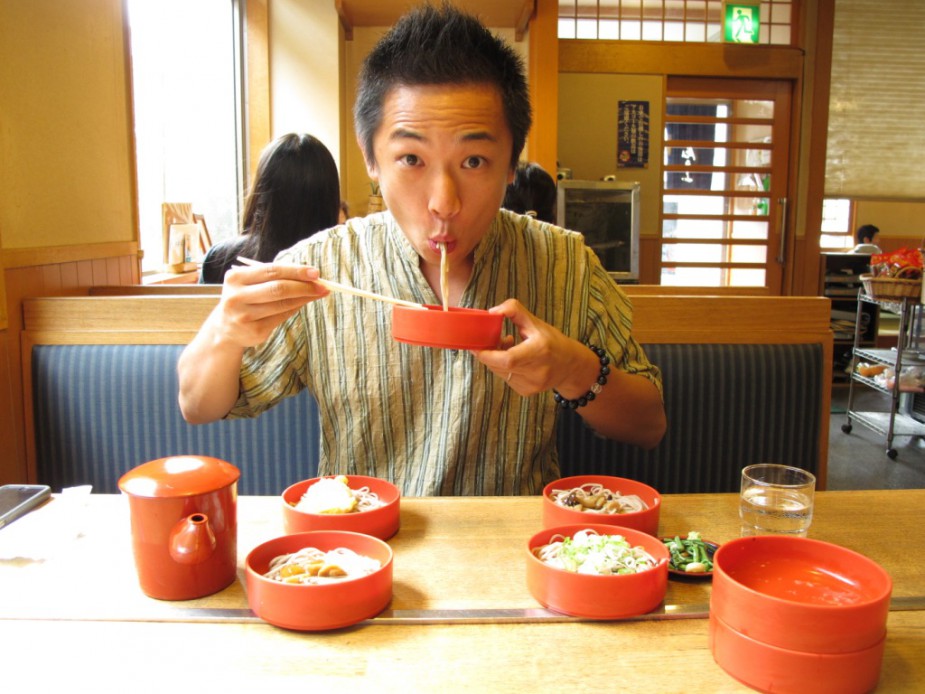
Eating Japanese Food – Youcojapan.com
Japanese live much longer than most people in developed countries. This is due to their diet. Longevity is impacted by diet and genetics. In Japan, the diet is full of high protein foods from plants, such as soy, and low-fat foods such as fish and vegetables. In addition, the well-balanced Japanese diet helps to promote the positive health of every body system. So, not only do the Japanese people live longer, they are healthier much later into their lives. The low-fat high fiber diet promotes health over heart disease, dementia, and diabetes. As a people, the Japanese are an example of how diet not only impacts health but the quality of life too.
7. Japanese have a Low Incidence of Cancer
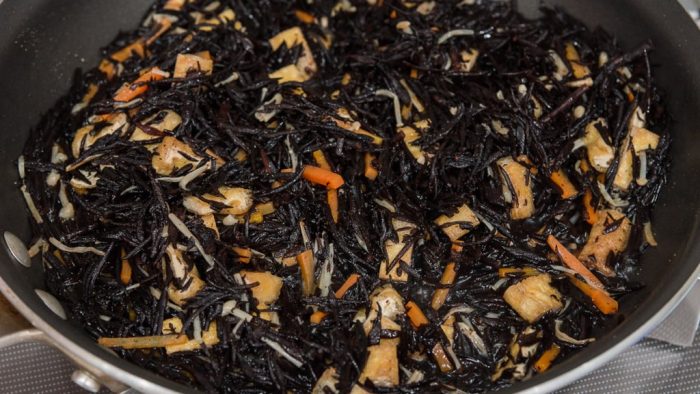
Hijiki Salad – Norecipes.com
The Japanese have a very low incident rate of cancer, especially when compared to the United States. Only 42 percent of Japanese women are at risk of developing breast cancer compared to 76 percent of women in the US. While nearly 84 percent of American men are at risk of developing prostate cancer, only 23 percent of Japanese men develop cancer of the prostate. These low incidence rates are due, in part, to the Japanese diet which is high in fiber, and phytochemicals from the large number of vegetables and fruits that they consume. The cancer comparison is long with Japanese showing low incidence of cancer. Read more about plant-based diets and cancer in Japan in this peer-reviewed study from Cancer Management and Research.
Advertisements
8. Healthy Weight and Reduced Incident of Obesity
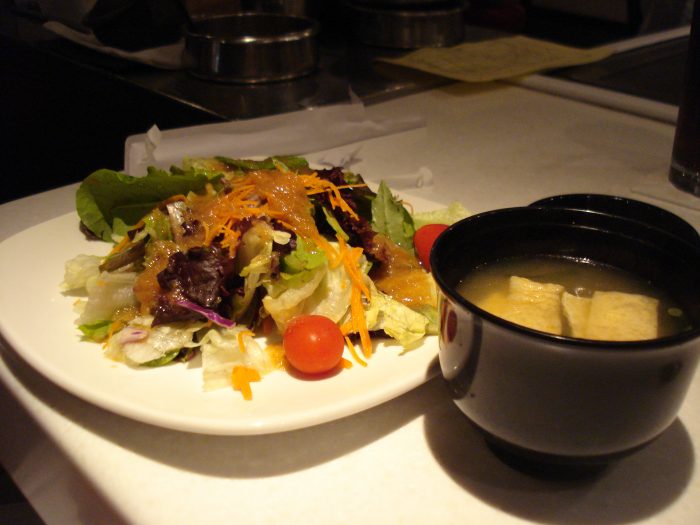
Miso soup and vegetables – Disneyfoodblog.com
Japanese people tend to have a healthy body weight thanks to their diet. The Japanese population has an average BMI of 21.5 – 23.2. In the US, the average BMI is 28.5. The Ideal BMI is between 18.5 and 24.9 whereas a BMI over 25 is considered heavy. BMI is calculated using body weight and height. The Japanese diet is an ideal diet for maintaining a lean body without being malnourished or short on energy. This is because in Japan meals begin with soup or vegetable which help to fill us up faster and without the energy crash that comes from eating processed carbs.
9. Naturally Enzyme Rich
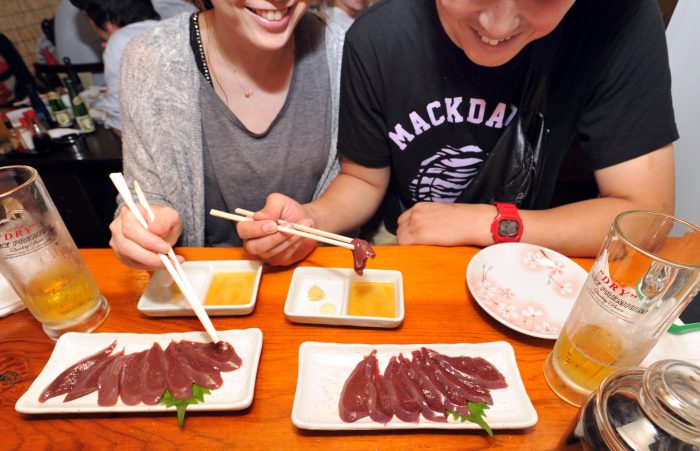
Sashimi -Japantimes.co.jp
Enzymes are highly specialized proteins or amino acids that help the body to function. For the most part, they help the body break apart chemical bonds. That process is how our body produces energy. Specific enzymes break down specific bonds, such as sugars from milk. When food is cooked, the quality of enzymes drops as heat drastically affects them. If food is cooked too hot, the enzymes in it are destroyed. What this means is that cooked food is harder for our body to use. Japanese diets have a lot of raw foods or foods that are barely cooked. That method of food production helps Japanese people obtain the best quality enzymes from their diet.
10. Healthy Blood Pressure Levels
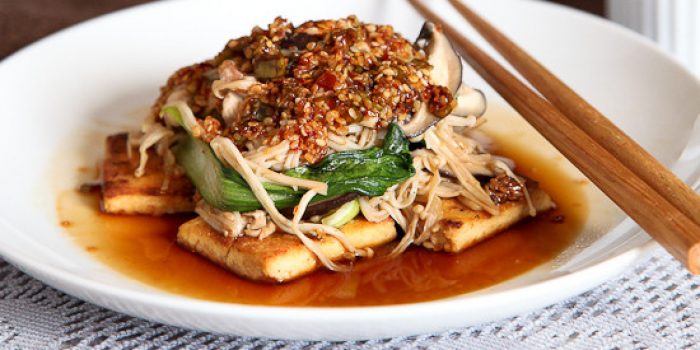
Tofu Recipes – Huffingtonpost.com
It is the enzymes, called isoflavones, in soy that help reduce blood pressure. The trick is that soy products, such as tofu and soy milk, are rich in enzymes that help the body to regulate the diameter of blood vessels. A soy-based diet helps keep the blood vessels open or dilated so that blood pressure drops. If you have a long family history of heart disease that is characterized by high blood pressure, considering adding soy products to your diet. Tofu is easy to use and found in most grocery stores. Soy milk is a good alternative to dairy and comes flavored. Adopting a Japanese diet is also a great way to lower blood pressure and boost health.
11. High in Nutrients
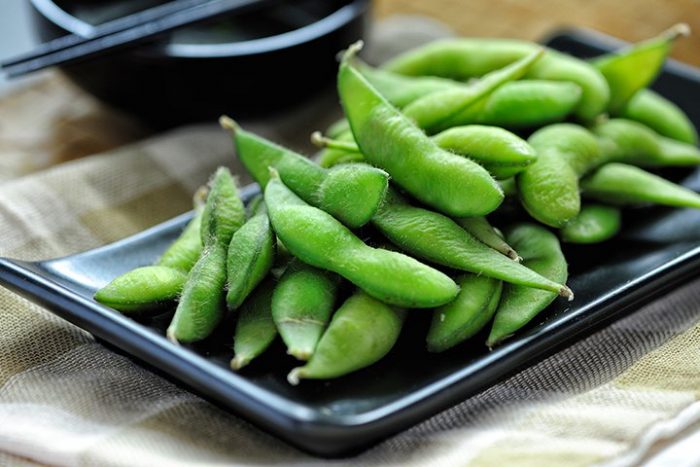
Eating Edamame – Momjunction.com
A great healthy benefit of Japanese food is that it is full of nutrients. That is in part to the many vegetables that Japanese people consume in a day. Vegetables only provide so much nutrition and the Japanese diet is highly balanced. It is low in fat, high in plant protein, high-grade carbs, and low in sugar. Because many vegetables are raw when consumed, you gain even greater nutrition. Foods like sushi, tofu, and edamame are all nutrient rich. The average Japanese person consumes 20-30 different vegetables every day. If you want to give your body the best resources to do its job, then diversify what you eat. That is one of the secrets of the Japanese diet.
12. Great Gut Health

Japan’s Prime Minister Shinzo Abe (C) eats a pickled plum (REUTERS/Toru Hanai) – Blogs.ft.com
The Japanese diet is rich in fermented foods like miso, pickled plums, fermented fish, fermented soybeans, and a host of other foods that are not only delicious but good for you too. One of the things that fermented foods do for our body is to help regulate the levels of stomach acids. If you suffer from acid reflux or sour stomach, consider adding fermented foods to your diet. Fermented foods also boost gut flora meaning that it helps us to produce and product gut bacteria and enzymes that aid us in the digestion of food. Fermented foods are easy to find in most grocery stores, such as sauerkraut or kombucha.
13. Strong Bodies that are in Proportion
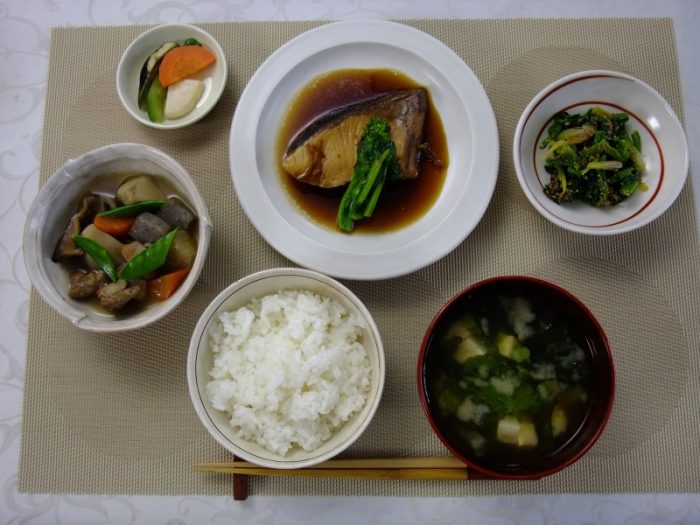
Japanese Balanced Diet – Japanpolicyforum.jp
The Japanese physique is balanced. It has a great BMI but one of the benefits of the Japanese diet is that it fortifies the body to do more. For the Japanese people, they not only have a good BMI but a good strength ration for their size. A healthy diet provides the building blocks so that our body can efficiently create healthy muscle cells or repair the ones that we have. Because the Japanese diet is so healthy it is easy for their body to produce quality muscle, bone, and connective tissue. They are not bulky or overly built but balanced.
14. Better Digestion
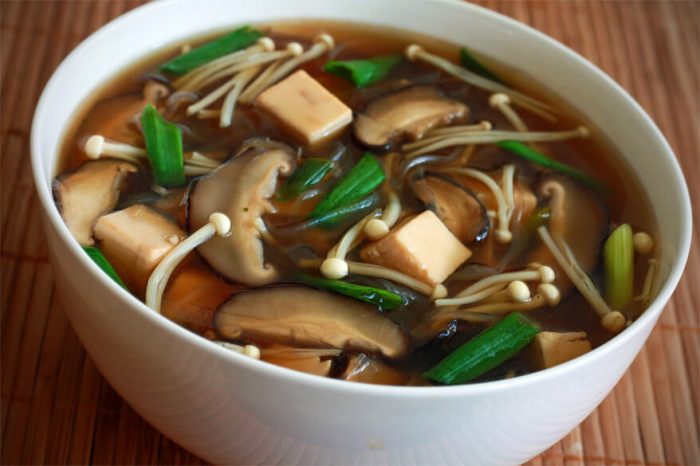
Japanese Mushroom, Tofu and Vermicelli Soup – Daringgourmet.com
The Japanese diet offers better digestion over many diets in the West. This is because of foods such as buckwheat flour and noodles that are made from Shirataki mushrooms. Without the high gluten diet, Japanese people have better digestion. The large quantities of raw foods and fish digestion as they are full of enzymes that help aid digestion. Fermented foods, vegetable proteins, and high-grade starches also positively impact digestion in Japan. Healthy digestion means that our body has an easier time breaking food down and gaining access to the nutrition in foods. If you worry about nutrition or vitamin deficiency, consider switching to a diet that is Japanese in nature.
15. Strong Bones and Healthy Brain Function
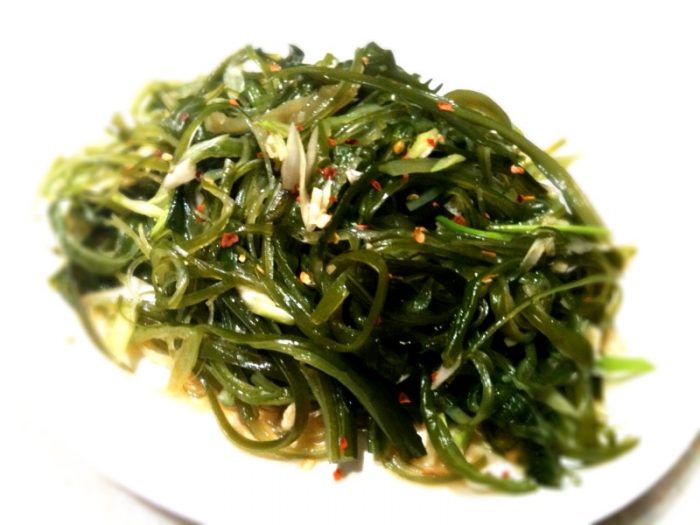
Advertisements
Japanese Seaweed Salad – Weeknitemeals.com
Japanese cuisine is often high in mineral content. This is in part due to the high number of vegetables they consume but more important in thanks to foods such as seaweed. Seaweed contains all of the important minerals that our body needs. Minerals are a critical part of our body. They help bodies to grow strong and they promote health. Calcium, phosphorous, manganese and many other minerals help our body to function. They promote good brain health, healthy blood thanks to iron, and to build strong DNA. The Japanese diet is an excellent source of quality minerals. If you worry about osteoporosis or other bone diseases, consider the benefits of a high mineral diet.

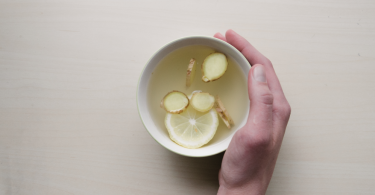


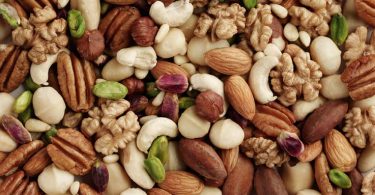
Comments